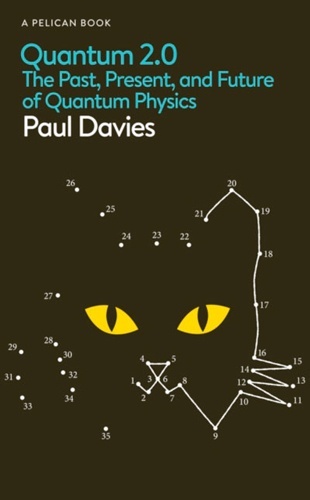Quantum 2.0
The Past, Present, and Future of Quantum Physics

Editorial Penguin Books Ltd
Fecha de edición noviembre 2025
Idioma inglés
EAN 9780241655801
320 páginas
Libro
encuadernado en tapa dura
Dimensiones 138 mm x 222 mm
Resumen del libro
How did a radical new theory of nature quantum mechanics revolutionize our world?Where might it take us next?And why do we still not understand it?In this exhilarating and sometimes mind-bending book, renowned scientist and author Paul Davies tells the gripping story of how, beginning with an iconic mathematical equation in the 1920s, a radical new theory of nature quantum mechanics burst upon the modern world, and how today we are on the cusp of the second great quantum technology revolution. Quantum 2.0 reveals how exotic states of matter that have no counterpart in the everyday world are being harnessed to enable forms of teleportation and spooky' telepathic links between remote places. Powerful new tools such as quantum computers, quantum cryptography and the quantum internet have attracted billions of dollars of investments, triggering a frantic quantum arms race.
And appearing on the horizon is the most awesome and game-changing prospect of all quantum AI. Yet underpinning this dazzling promise lies a paradox. Although quantum mechanics is the most successful scientific theory ever, quantum systems possess properties that defy intuition and shred everyday notions of reality.
Albert Einstein could never quite believe it. And decades after Erwin Schrödinger introduced his famous cat paradox, scientists are still divided over how to make sense of the weird quantum realm, one where ghostly quantum particles produce tiny forces in nanotechnology, cause black holes to evaporate and may even be making the universe expand faster and faster. Indeed, cosmologists believe, the imprint of a quantum process remains etched into the afterglow of the big bang.
Quantum 2.0 takes the reader gently from the basic concepts to the cutting edge, inviting us all to peek into the new wonderland of quantum physics and glimpse its stunning implications.
Biografía del autor
x{0026}lt;p Paul Davies es físico, cosmólogo y astrobiólogo de prestigio internacional. Trabaja en la Universidad Estatal de Arizona, donde dirige el Beyond Center, un centro pionero dedicado a abordar las grandes cuestiones de la ciencia y la filosofía. También preside el grupo de trabajo posterior a la detección de vida extraterrestre inteligente, de modo que si SETI logra encontrar vida inteligente él será de los primeros en saberlo. El asteroide 1992 OG se rebautizó oficialmente Pauldavies en su honor. En 1995 recibió el Templeton Prize por su trabajo sobre la ciencia y la religión. Es autor de más de una veintena de libros.x{0026}lt;/p








